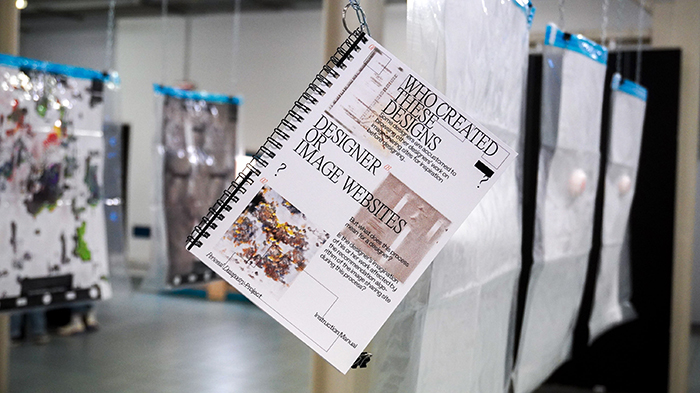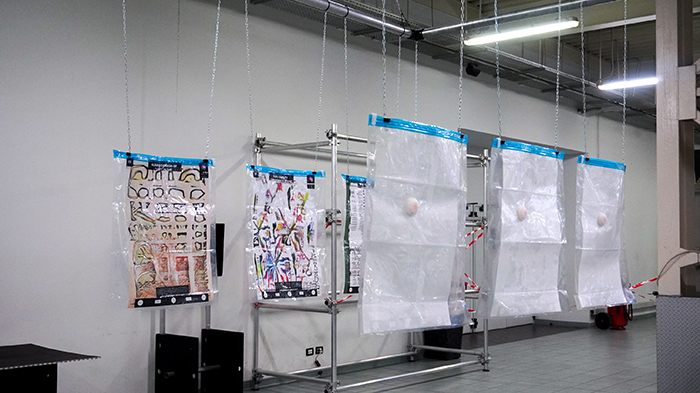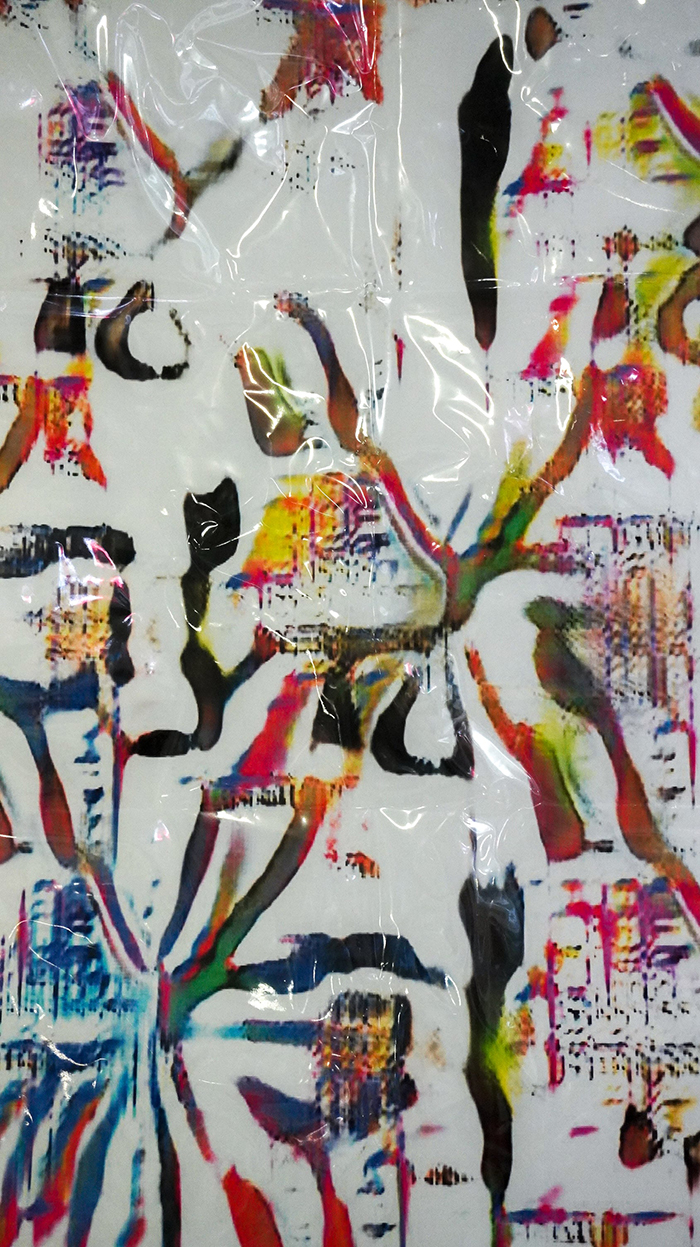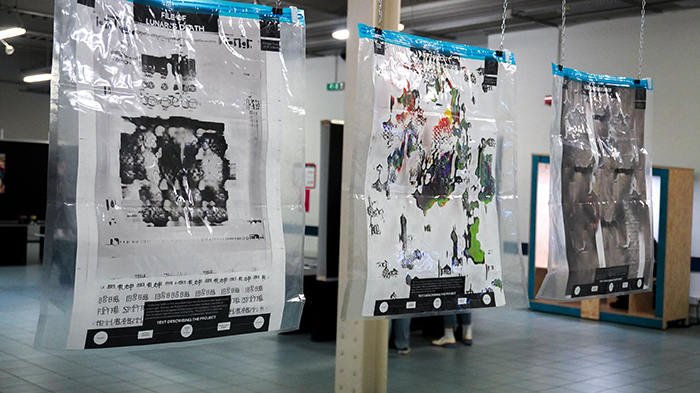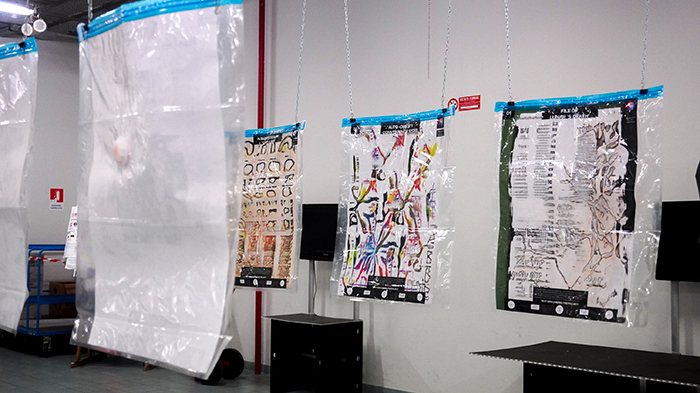Who created these designs? Designer Li Ye or image websites?
By Ye Li
My information poetry installation consists of three juxtaposed sets of posters, each of which will be provided with a booklet explaining the process of producing this work. The viewer will first notice the posters juxtaposed in groups and then read the information on the posters to understand the style of the posters from a project and the visual references I found on photo sites to design the project. I wanted the audience to look at the similarities and differences between the two posters in each group in order to consider the questions posed by this information poem, “Who made these designs, the designer or the photo site?” and “Does the recommendation algorithm of the photo site using personal data have an impact on the designer’s personal aesthetics?”
